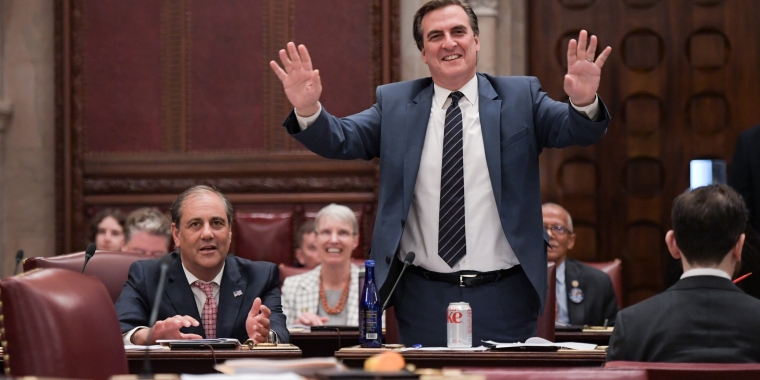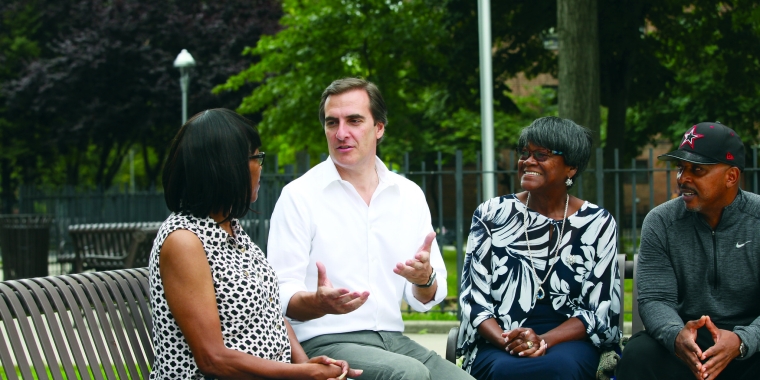
Senate Passes Deputy Leader Gianaris’ Bill Mandating Lead Testing At State And Local Parks
April 5, 2022
-
ISSUE:
- #LeadFreeNY
- lead testing
- Parks
- Water
- Families

ALBANY, N.Y. – Senate Deputy Leader Michael Gianaris announced the Senate passed his legislation (S.1256) requiring state and local parks to test water fixtures for lead and make repairs to any deemed unsafe.
“There is nothing more important than the safety of our children and we have a responsibility to ensure we are not endangering them through public water supplies,” said Senate Deputy Leader Michael Gianaris. “I am proud the Senate passed this critical safety measure that will save children’s lives.”
“I am very glad o see this bill move forward. Addressing lead exposure remains an urgent and important issue for communities across New York,” said Bill sponsor Assembly Member Danny O’Donnell. “This bill brings important limits for lead levels in park water fountains in line with existing standards set by the U.S. Food and Drug Administration, Canada, and the European Union. Children and expecting parents spend countless hours during the warmer months in our parks and playgrounds, and it is crucial that they have safe drinking water readily available. Recent testing has found too many park drinking fountains with lead levels between 5 and 15 parts per billion (ppb), with a disproportionate number of those fountains concentrated in Staten Island, the Bronx, Harlem, Washington Heights and Inwood. Having lead testing and remediation plans in place is key for the health and safety of future generations all over New York.”
The legislation requires parks to test for potable water every three years to determine if there is any lead contamination. If elevated lead levels are found, the location would have 90 days to remedy the situation. Results would be submitted to the state and displayed online for public review.
A law enacted in 2016 required schools to test for lead in water every five years; no such mandate exists for public parks. Senator Gianaris’ legislation increases the scope of testing to include parks, requires testing to occur more frequently and creates open data disclosure of the information.
related legislation
Share this Article or Press Release
Newsroom
Go to Newsroom


